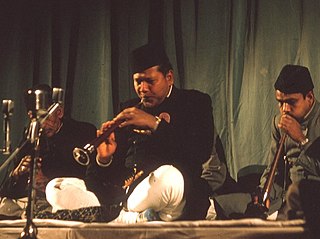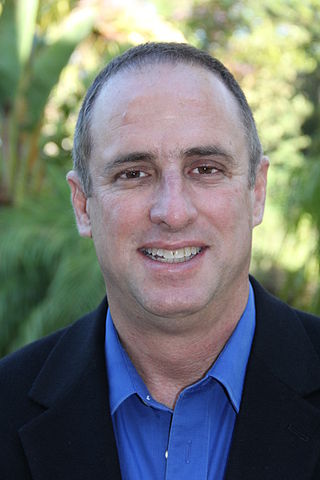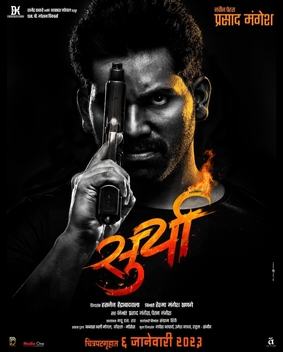Related Research Articles

An orchestra is a large instrumental ensemble typical of classical music, which combines instruments from different families. There are typically four main sections of instruments:
In musical terminology, tempo, also known as beats per minute, is the speed or pace of a given composition. In classical music, tempo is typically indicated with an instruction at the start of a piece and is usually measured in beats per minute (BPM). In modern classical compositions, a "metronome mark" in beats per minute may supplement or replace the normal tempo marking, while in modern genres like electronic dance music, tempo will typically simply be stated in BPM.

Boléro is a 1928 work for large orchestra by French composer Maurice Ravel. It is one of Ravel's most famous compositions. It was also one of his last completed works before illness diminished his ability to write music.
A variety of musical terms are encountered in printed scores, music reviews, and program notes. Most of the terms are Italian, in accordance with the Italian origins of many European musical conventions. Sometimes, the special musical meanings of these phrases differ from the original or current Italian meanings. Most of the other terms are taken from French and German, indicated by Fr. and Ger., respectively.
A bandleader is the leader of a music group such as a dance band, rock or pop band or jazz quartet. The term is most commonly used with a group that plays popular music as a small combo or a big band, such as one which plays jazz, blues, rhythm and blues or rock and roll music. Most bandleaders are also performers with their own band, either as singers or as instrumentalists, playing an instrument such as electric guitar, piano, or other instruments.

Ustad Bismillah Khan, often referred to by the title Ustad, was an Indian musician credited with popularizing the shehnai, a reeded woodwind instrument. He played it with such expressive virtuosity that he became a leading Hindustani classical music artist. His name was indelibly linked with the woodwind instrument. While the shehnai had long held importance as a folk instrument played primarily schooled in traditional ceremonies, Khan is credited with elevating its status and bringing it to the concert stage.
Kirana gharana is one of the Indian classical khyal gharanas, and is concerned foremost with intonation of notes (swara).
The coladeira is a music genre from the Cape Verde islands in the central Atlantic Ocean.
Greek traditional music includes a variety of Greek styles played by ethnic Greeks in Greece, Cyprus, Australia, the United States and other parts of Europe. Apart from the common music found generally in Greece, each region of Greece contains a distinct type of folk music that originated from the region due to their history, traditions and cultural influences.
Irama is the term used for tempo in Indonesian gamelan in Java and Bali. It can be used with elaborating instruments. It is a concept used in Javanese gamelan music, describing melodic tempo and relationships in density between the balungan, elaborating instruments, and gong structure. It is distinct from tempo, as each Irama can be played in different tempi. Irama thus combines "the rate of temporal flow and temporal density"; and the temporal density is the primary factor.

The güira is a percussion instrument from the Dominican Republic used in merengue, bachata, and to a lesser extent, other genres such as cumbia. It is made of a metal sheet and played with a stiff brush, thus being similar to the Haitian graj and the Cuban guayo and güiro. Güira, guayo and güiro all have a function akin to that of the indigenous native maracas or the trap-kit's hi-hat, namely providing a complementary beat.
Anupama Bhagwat is an Indian sitar maestro.

A tabla is a pair of hand drums from the Indian subcontinent. Since the 18th century, it has been the principal percussion instrument in Hindustani classical music, where it may be played solo, as an accompaniment with other instruments and vocals, or as a part of larger ensembles. It is frequently played in popular and folk music performances in India, Bangladesh, Afghanistan, Pakistan, Nepal and Sri Lanka. The tabla is an essential instrument in the bhakti devotional traditions of Hinduism and Sikhism, such as during bhajan and kirtan singing. It is one of the main qawwali instruments used by Sufi musicians. The instrument is also featured in dance performances such as Kathak. Tabla is a rhythmic instrument.
The Jadhav is an clan (Gotra) found in the several castes such as Koli, Maratha, Banjara and Mangs living in Indian states of Maharashtra, Goa, Karnataka, Telangana

Maharashtra State Film Awards, one of the prestigious awards of Marathi cinema, are awarded by the Government of Maharashtra to Marathi language films and artists. They were first awarded in 1963.
Penupatruni Adinarayana Rao was an Indian music director, film producer, lyricist and play writer. He co-founded "Aswini Pictures" with Akkineni Nageswara Rao and produced some movies in Telugu and Tamil. Later, he produced several blockbuster Telugu films under his own production house, Anjali Pictures, named after his actress wife, Anjali Devi. He also composed and produced music for several Tamil and Hindi films.
Gaekwad is a surname native to the Indian state of Maharashtra. The surname is found among the Marathas, Kolis and in Scheduled castes. It is also a common surname among Bharadis, Dhor, and Mahar communities of Maharashtra.

Andrew Surmani is President and CEO of Surmani Business Coaching and Professor of Music Industry Studies/Academic Lead of the Master of Arts in Music Industry Administration program in the Mike Curb College of Arts, Media and Communication at California State University, Northridge (CSUN). Previously, he served as Chief Marketing Officer for Alfred Music, where he played a key role in the company's acquisition of Warner Brothers Publications, and launched numerous product lines.

Surya is a 2023 Indian Marathi-language action drama film directed by Hasnain Hyderabadwala and produced by SP Motion Pictures. Surya was released in theaters on 6 January 2023. Hemant Birje of 1985 Hindi Adventures of Tarzan was made his Marathi film debut with this film.
References
- ↑ "Keeping 'sundari' tradition alive". Archived from the original on 2013-11-16.
- Ranade, Ashok Damodar (2006). Music contexts: a concise dictionary of Hindustani Music. Bibliophile South Asia. ISBN 81-85002-63-0.
- Hoiberg, Dale; Indu Ramchandani (2000). Students' Britannica India. Popular Prakashan. ISBN 9780852297605.